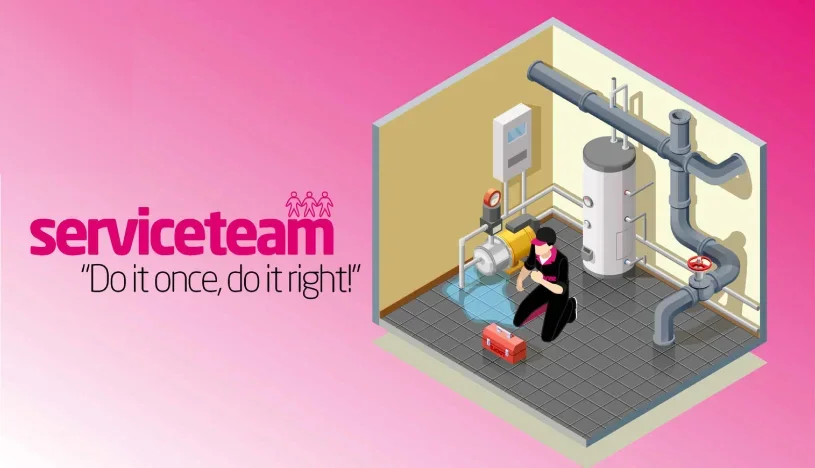
How To Reduce Boiler Pressure ?
The boiler can be referred to as the soul of the central heating system.
Practically present in every household these days, any malfunction such as boiler pressure fluctuations in it can lead to further complications which only can be compensated by heavy repair jobs, or sometimes full replacement.
Therefore, it’s important to know about your boiler’s functionality and operating method.
One of the most common issues caused in boilers is pressure fluctuations which sometimes go lower, or higher than the required limit, needing to be looked after and fixed in the meantime to avoid certain consequences.
Just to save your time, here we will be discussing optimum boiler pressure, causes of high pressure, and how to lower it.
To understand the aforementioned terms, there are some things you need to know first…

Annual Boiler Servicing - London
Our Highly Experienced Service engineers can come to your property in the quickest possible time and get your boiler serviced by a Gas Safe engineer.
What is boiler pressure?
First things first, boiler pressure should not be confused with pressure related to tap water. It’s actually the balance between water and air in your central heating system.
For a boiler to work optimum the boiler pressure should neither be too high nor too low as both can affect its functionality.
On one hand, where high pressure overloads your system, low pressure can completely cut it off, each equally unfavorable in its own way!
What is the optimum boiler pressure?
The pressure should orient around 1-bar at the time when there’s no hot water running in the system or heat isn’t turned on yet.
This is actually a low-pressure setting. Once the water starts running, the pressure should be between 1.5 and 2 bars.
Even an increase up to 2.5 bar is normal when hot water is in use.
However, Pressure higher than that is counted as high, therefore needs proper treatment to be normalized.
What causes High Boiler Pressure?
There are various causes for High Boiler Pressure including faulty and leaky parts, or excessive amounts of water.
Although the former reason may require a professional Gas Safe Engineer for which you can consult Serviceteam, the latter one can be easily fixed if you’re a DIY.
The most common cause of excessive water is pressure adjustment from a very low level. It usually occurs when the filling loop pumping water to the boiler is left open. Make sure it is fitted well before taking further steps!
How to Lower Boiler Pressure?
Pressure reading and Safety Valve Check
An effective way of normalizing Boiler pressure is given as follows, in a step-by-step manner for better comprehension. However, you might need a professional for it!
First of all, find the pressure gauge situated on the front-side of the boiler.
Check if the pressure is sticking around 3-bars.
Look for the safety valve situated on the top. If it is broken or working improperly, it might be the reason for high pressure.
Inspect it for any sort of cracks or steady streams of water. It is important that the valve doesn’t have any cracks or leakage as it will need a good repair job or even a complete replacement in severe cases.
Just in case everything’s alright even after a thorough check, there might be some other issue that can be fixed with simple bleeding:
Bleeding
If you even have the slightest idea of a boiler’s functioning, you can solve boiler pressure issues caused due to an excessive amount of water. The process is pretty straight forward. You will just have to bleed it!
Here’s the step by step method of doing it:
Buy a radiator key from your local hardware store just in case you don’t have it.
Make sure that the boiler is cold before you proceed. Its a safety precaution often neglected which results in serious burn injuries.
Locate the release valve on your radiator, usually situated on top. Turn it anti-clockwise to release the trapped air.
Along with that, you’ll also see water leaking from the radiator. It’s preferable to place a container in a proper position to keep the floor from getting wet.
After some time the air and water discharge will stop.
If the problem is minute, it should bring back the boiler pressure to normal.
Other Solutions
In terms of complicated issues, Here are some other possible solutions you need to try:
Try closing the valves on the filling as extra water supply might be overloading the boiler, consequently causing high pressure.
Remove the debris by draining some water out of the filter as it might be blocking the water passage, increasing the pressure on the boiler in turn.
If you know about pressure control operating, check if they are working correctly.
If all is good, call a professional to identify the problem.
Need Help?
If you are looking for any sort of boiler repair, replacement, and maintenance service throughout London, Contact us straight away at 020 3925 6439.
We have highly qualified gas safe engineers along with extremely customer-friendly staff who are ready to help you 24/7. Not only will they hear your questions, but will give you expert advice on tackling the situation.
All you need to do is just dial our landline number and you’ll find us at your doorsteps.






